@dkbooks
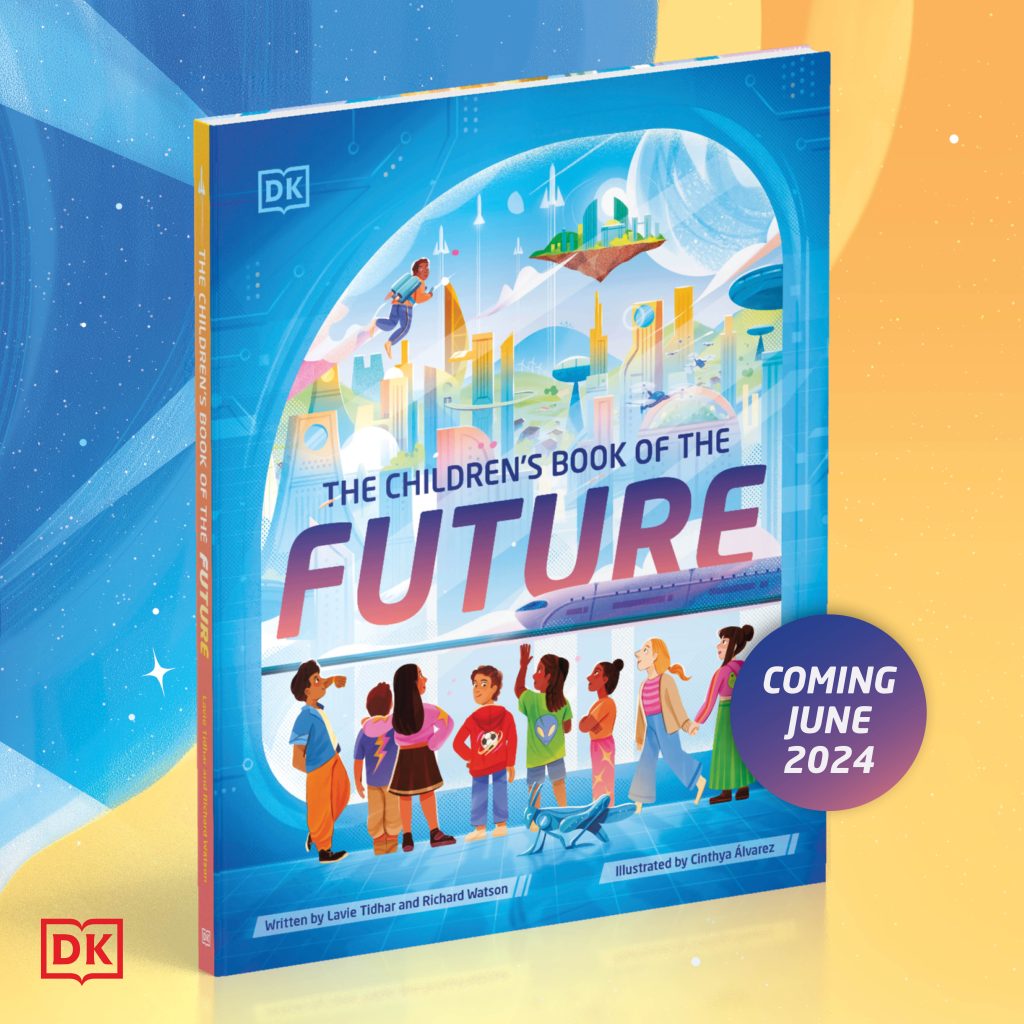

2020/21 will be years to remember, but could such memory go well beyond archived blog posts, and celluloid story-telling? Could ‘memory’ of the past twelve-months be directly inherited by future generations via DNA?
Prior to the pandemic, an experiment by a team of researchers at the Emory University School of Medicine, in the USA, showed that mice trained to avoid a particular smell passed their aversion on to their ‘grandchildren’. In other words, the experience of the mice prior to conceiving was essentially encoded into their DNA and made subsequent generations of mice extremely sensitive to the same smell. Or to put it another way, experience can be inherited.
Professor Marcus Pembury from UCL, in the UK, commented that the US study on mice was “highly relevant to phobias, anxiety, and PTSD disorders” and said that the study provided solid evidence that a type of memory could be passed on to future generations.
One implication here is that the current levels of anxiety related to Covid-19, especially among younger people, could linger far longer than most people might imagine.
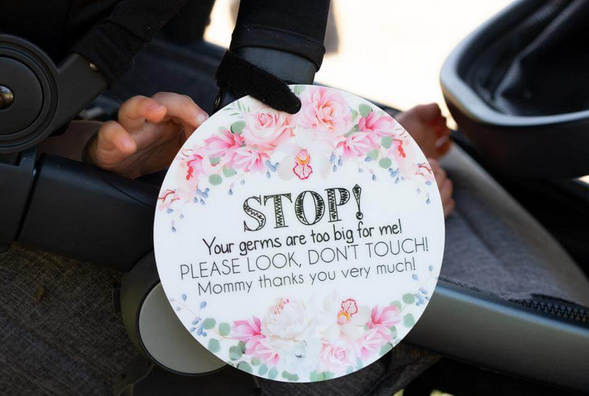
OK, two scenarios in light of Coronavirus and the current outbreak of anxiety.
Scenario one: Social distancing becomes the norm. People avoid people.
People don’t trust people. People trust machines and prefer their company. A
society-wide deletion of the human interface (currently to be seen emerging in
banks and supermarkets across the UK and elsewhere). People work from home,
consume at home and essentially keep their mental front doors closed to things
they don’t like. Contact with nature is lost, so too is curiosity about other
people. The triumph of the digitally empowered individual.
Scenario two: Self isolation turns out to be a blessing disguised in a face
mask. People re-discover the joys of solitude. The cult of productivity and
competitive busyness is called into question. People find joy in simple things. People slowly realise they need other people. People question what makes them truly happy and it turns out the answer is other people and especially helping strangers. There is an outbreak of empathy and kindness and a societal shift from ‘me’ to ‘we’. Civic responsibility and societal good trumps individual rights and freedoms.
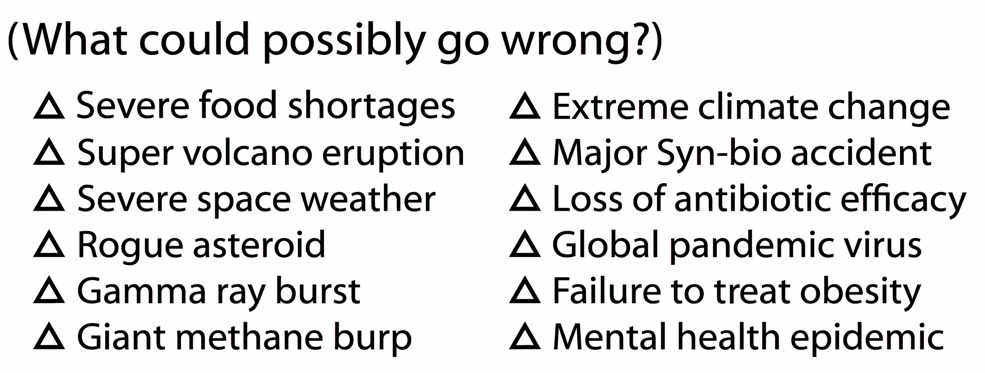
It’s interesting to me to see how the media, and hence the public, are responding to Coronavirus (I think that’s the correct way around, but it’s hard to say who’s leading who sometimes). The risk of death is remote (a mortality rate of between 0.7% and 3.0% currently depending on circumstances and location), which is almost nothing. Ebola had a mortality rate of 60%, SARS 10%. The numbers 0.7-3.0 are still significant if applied across a while population, but the response of the media, and hence governments and people, generally seems over the top.
I think that perhaps the reason for this might be the current narrative, which is doomsday apocalyse (think of climate change and species extinction in particular). It’s also got something to do with how we think about the future generally, which is logical but hugely unhelpful (we simply extrapolate from current data or conditions in a linear manner) and perhaps the fact that people are generally dreadful at working out real probabilities or understanding the impact of feedback loops, counter-trends or unexpected events.
And, of course, connectivity is fuelling everything. It’s spreading the virus, but it’s also spreading panic about the virus. News is travelling to fast to be properly analysed, fact checked or placed in proper context.
Anyway, as they say, my particular interest at the moment is how the current panic about Coronovirus might work with other anxities to create some kind of super-anxiety or mental collapse (shades of Future Shock – see After Shock). I eluded to this somewhat when I created my risk radar and spoke of unseen combinations of events and put Global pandemic alongside Loss of antibiotic efficacy, Mental health epidemic and Global financial system collapse. The thought was repeated on the list of global gamechagers on my map of mega-trends.
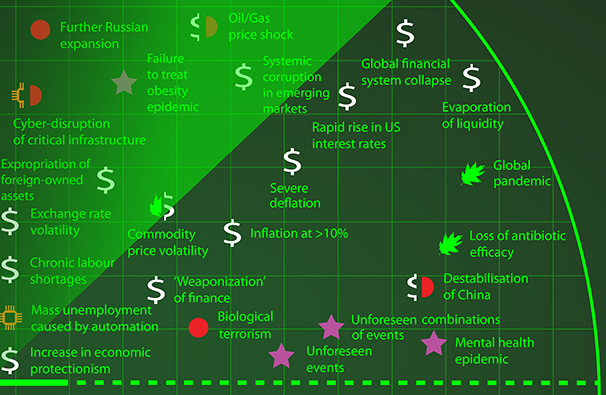
So what to do? I think the Stoics have it nailed. Worry about or do something about what you can influence, or control, and don’t worry or try to control about what you can’t. In the words of Seneca, “The greatest obstacle to living is expectancy, which hangs on tomorrow and loses today.” Or, as he also put it, “You are arranging what lies in Fortune’s control, and abandoning what lies in yours.” It will be what it will be.
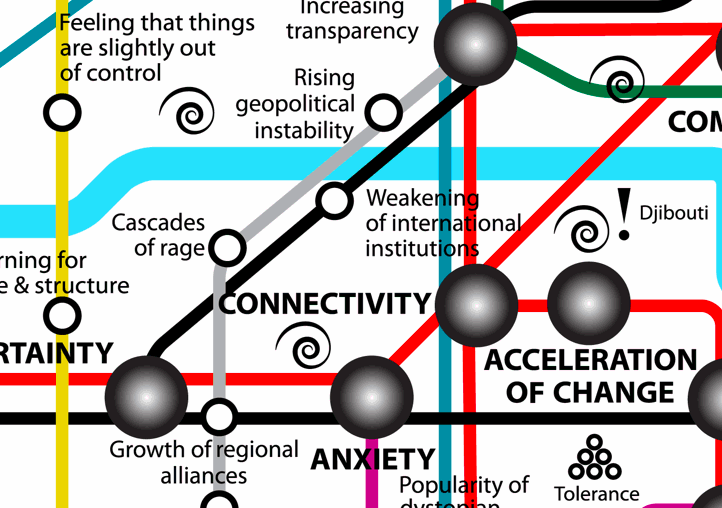
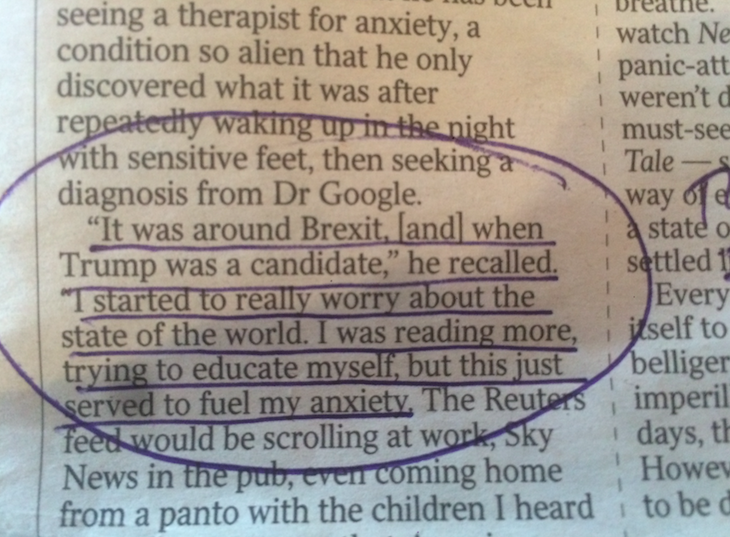
So it’s not just me then? The world seems to be increasingly run my tyrants and fools. But the triumph of bad people over good is the real kick in the guts. I know it’s only a phase (probably) but even so. I couldn’t agree more about the media. They just make things worse.
A while ago, in my book Future Vision, I wrote about people destroying technology for fun (extract above). This wasn’t an existing trend, but one I could see coming. Well it’s come true. In the USA, Canada, Russia and Italy people are setting up ‘Rage Rooms’ where people can pay $3 per minute to destroy everything from TVs to computers with a baseball bat or sledgehammer. There’s a even been a pop up Rage Room in New York and there’s a company called Tantrums in LA. whose slogan is “we break things.”
Meanwhile, and clearly connected, a poll in the US by CNN/ORC has found that 71 per cent of Americans are either “very” or “somewhat angry” about “the way things are going on in the country today.”
Breaking stuff isn’t a new thing. In the UK we’ve had crockery and plate smashing at fairgrounds for hundreds of years. But this is different. This is a cascade of rage. I’m telling you people, this is a very strong weak signal and indicative of something quite nasty potentially.
According to some techno-evangelists, humanity is on the verge of huge breakthroughs in computing, robotics, genetics, automation and artificial intelligence that will dwarf many of the inventions of the past two centuries. They might be right, but at what price? What might the cost be of these breakthroughs in terms of unemployment and inequality? Moreover, are these breakthroughs really as close as the evangelists claim and will they be as fundamental as those in the past?
It can be argued, for example, that compared to clean water or the invention of the motorcar, Facebook and Uber are trivial inventions. Most of our recent innovations are incremental improvements of innovations created years ago and most of the most significant change over the last 100 years has been social not technological.
Time will tell as to who’s right, but it does seem a fair bet to suggest that the search for economic efficiency and convenience will continue to displace workers on a significant scale and may focus wealth in a handful of places and professions. Fully autonomous farms, factories, warehouses, logistics and transport networks are probably not that far off and it’s possible that the development of digital and virtual products and services, many of them delivered for ‘free’, will result in mass consumption being decoupled from mass employment, which could be catastrophic.
None of this has to be a bad thing, of course, if new jobs are created and perhaps if the spoils of efficiency are fairly shared, although remember that while the Industrial Revolution created new jobs, wages in England were stagnant or declined for almost 40 years and that work conditions associated with many of the new jobs were appalling.
Having said this it’s almost impossible that all old jobs will disappear. Many of the developments that are nervously anticipated are still years away and many of the things that humans do will remain out of reach for robots and autonomous systems. Humans are far better than machines at abstraction, generalisation and creative thinking. We have vastly better common sense than machines, we’re agile, nimble and energy efficient too. And don’t forget that it’s humans that have rights and vote – and we can revolt too. Humans are also a deeply social species and physical connection is likely to remain important. Many of of our economic needs are also explicitly interpersonal or social.
The bad news is how robots and automated systems interact with human beings depends a great deal upon how much their designers know or care about human beings. In the same way that there’s a fine line between genetics and eugenics, there’s a thin line between technologies that enhance humanity and those that diminish it. Moreover, developments in robotics, information technology, neuro-technology and genetics all have the potential to vastly widen the gaps that already exist in health, intelligence, opportunity and achievement.
The amount of data that spills from these technologies also seriously threatens privacy and freedom of choice. There’s a very real possibility too that one day these technologies will advance to such a point that the owners of the technologies will be able to predict and control almost everything an individual does, thereby reducing humans to mere automatons.
This is unlikely, although an even worse scenario might involve the widespread adoption of mediocre artificial intelligence and predictive systems, which, little by little, become a train wreck of momentous proportions due to a decline in human agency or a crisis in human identity.
Governments and giant corporations are pouring billions into robotics and automation projects with almost no external oversight whatsoever. We urgently need the inclusion of an ethical code alongside any computer code and should be able to quiz the technologists, and perhaps one day the technologies themselves, about their knowledge, their skills, and their intentions. Ultimately, any AI singularity is a choice, not a destiny.
A study by the NASUWT Union in the UK found that 83% of teachers reported workplace stress. Meanwhile, the Public and Commercial services Unions claims that 2/3 of civil servants have suffered from ill health due to workplace stress. To cap things off, the NHS in the UK says that the prescription of heavy duty antidepressants increased by 29% last year. What is going on?
I’d like to let you in on a little secret about the future, which is that there isn’t one.
Instead there are multiple futures, all of which can be influenced by how you, me and we choose to act right now. Moreover, how we imagine the future to be influences present attitudes and behaviours, much in the same way that our individual and collective histories help to define who we are. Put in a slightly different way, both past and future are always present.
But many people can’t see this. For them the future is something that just happens. It cannot be influenced. Increasingly, the future is also something that people fear, not something they look forward to. This is especially true in parts of the US and Europe.
This wasn’t always the case. The 1950s and 1960s were generally periods of great optimism, especially around technology. Even during the 1970s, 1980s and into the 1990s, the future was generally thought to be a good thing. It would bring more of whatever it was that people wanted.
But this view changed very suddenly. We were expecting trouble on 1 January 2000, but it was not forthcoming. Our computers still worked, our trains still ran and no planes fell out of the sky.
But then, on 11 September 2001, some lunatics armed with nothing more than a strong idea and a few feeble box-cutters flew two planes into the Twin Towers. On this date a number of Western certainties collapsed.
Or maybe the date was 9 November 1989. This was the day when the Berlin Wall fell down. This was meant to be a good day, an opening up of freedom and democracy. But it soon became apparent that two empires waged in a war of words on either side of the wall had meant certainty for almost half a century.
Whatever the precise date, it seems that many people no longer believe in the future. Indeed, many people seem to have fallen out of love with the very idea of progress – the idea that tomorrow will generally be better than yesterday.
Back in the early 1970s, Alvin and Heidi Toffler wrote a best-selling book called Future Shock. In it the authors argued that too much technological change, or at least the perception of too much change, over what was felt to be too short a period of time, was resulting in psychological damage to our Stone Age brains. The Tofflers also placed the term ‘information overload’ into the general consciousness.
In many ways, the idea of future shock is similar to that of culture shock. Both refer to the way in which individuals feel disorientated and to some extent powerless as they move from one familiar way of life to another. In the case of culture shock, this usually refers to the physical movement from one country or culture to another. In the case of future shock, we might use the term to describe our shift from analogue to digital culture or from a period containing what were thought to be fixed truths and geopolitical certainties to an era where boundaries are more fluid and nothing seems to be very certain.
The rapid change argument is certainty plausible. Adherents to this argument could cite Moore’s Law in the case of computing or rapid developments in synthetic biology, robotics, artificial intelligence or nanotechnology – or perhaps the breathless expansion of social media – as evidence for their case.
But was it not ever thus? The Internet, a fundamentally disruptive technology, can be compared in terms of impact with the rapid development of the telegraph, railways or even electricity in Victorian times. In fact I met an old gentleman not so long ago who was defending the erection of a mobile phone mast. Apparently, there was a similar fuss when the streetlights were first put in.
As for recent developments in the Middle East, history does seem to repeat itself, often as tragedy and sometimes as farce, as Karl Marx once observed.
Many things are indeed changing, but this has always been the case. Moreover, many of our most basic needs and desires – for example our quest for human connection, our sense of fairness, our need to belong to a community and our love of stories have hardly changed.
We still eat. We still drink. We still fall in and out of love. We still watch movies. We still listen to music. We still wear clothes and wear wristwatches. Actually I’m not totally sure about that last one. A friend of mine told me that he’d recently given his twelve-year-old son a watch for his birthday. The kid looked rather perplexed and asked why his father had given him a “Single function device.”
But I don’t think that the Swiss watch industry has much to worry about. Indeed we have been here before in the late 1970s when watches first went digital. People in the industry initially panicked, but then calmed down once they realised that people don’t buy watches just to tell the time.
Indeed, focusing purely on logic sometimes misses the point in the same way that focusing on technology at the expense of psychology can get you into a whole heap of trouble.
There are also cycles. I’m old enough to remember not only bicycles, but also beer and cider and a host of other things ranging from butter to bespoke suits being written off one moment and being reinvented and reinvigorated the next. As someone once said, there’s no such thing as mature industries, only mature executives that think certain things are impossible.
So why is pessimism about the future all the rage? To a great extent this is a Western phenomenon. If you speak with people in Mumbai, Shanghai or Dubai about the future there is generally more optimism on the streets. But even here there are worries surfacing that relate to everything from rapid urbanisation and income polarisation to water security, food prices and pollution. Fear of change, it seems, is increasingly universal. Why could this be so?
You might cite globalisation. Globalisation has brought many benefits, but as the world flattens and becomes more alike, cultural identity is coming more important. Indeed, the more globalised the world becomes, the more the local seems to matter and the more that historical differences come to the surface.
A loss of cultural identity could be a reason for the unease. But there are many other contenders. The economy is another potential culprit. One could also mention the number of people living on their own, the fear of unemployment, the blurring of work and home life, the breakdown of marriage, the decline of trust or the general acceleration of everyday life.
It could also be due to the (supposed) Wane of the West – the idea that the American and European Empires are falling while those of China, Russia, India, Brazil, Africa and others are all on the rise. These are all credible explanations, but I don’t think that any, or all, are quite right.
I would like to suggest an answer in three parts.
First, I think we are anxious because we are indeed exposed to too much information. The Toffler’s were right, they were just 40 years wrong.
What you don’t know can’t hurt you as they say, but in a digitally connected world everything, it seems, is visible and therefore everything has the potential to hurt or to embarrass you. Reputational risk is everywhere, not only for institutions but for individuals too.
I am not only referring here to privacy and the immortal nature of digital stupidity. I am also pointing towards cyber bullying, data and identity theft and a world in which we are all being watched, not by Big Brother, as Orwell predicted, but by our own social networks. These networks claim to be connecting us, but in so doing they never leave us alone and never allow us to be our real selves.
Second, I think we are anxious and worry about the future when we haven’t got anything more serious to be concerned about. Hence we imagine risks that barely exist or blow the risks that do exist out of all proportion. We indulge in self-loathing for similar reasons. As a species we have achieved a lot over the last few thousand years. If you look at almost any measure that matters – numbers ranging from infant mortality and adult longevity to literacy rates, extreme poverty, access to education, health, the number of women in education, the number of women in the workforce or the number of people killed in major conflicts we have rarely had it as good as we have it today.
But we don’t see this. What we see instead is the idea that progress itself has somehow become impoverished.
The popular view is that although technology and GDP have advanced, morals and ethics are treading water or, depending on your choice of broadcaster, are sinking back into decadence or barbarism. I would suggest that the reason for this has something to do with our own megalomania, our own sense of importance. I think it also has something to do with a lack of purpose and narrative, which brings me onto my third and final point.
I believe that the reason so many people around the world are anxious is because they can no longer see what lies ahead.
Back in the 60s, 70s, 80s and 90s, people believed that the future would be a logical extension of the present. They were wrong, deluded in many instances, but this hardly matters. What does matter is they had something – and it really could have been anything – to aim for and to orientate around.
But now we no longer believe in such things. Outside of a few pockets of massive wealth and/or techno-optimism, we have somehow fallen victim to the idea that the future is something that just happens to us. Something to which we can only react. Something we can do nothing about.
But this attitude is nonsense. The only thing we know for certain about the future is that it’s uncertain. And if it’s uncertain there must be a number of potential outcomes, a number of different ways in which the future might unfold. And all of these futures can, to a greater or lesser extent, be influenced by what we, as individuals and society, decide we want.
This, if you’ve not figured it out already, is intimately connected with leadership and to some extent innovation. In both cases an individual, or sometimes a small group, has a vision of a world that they’d like to see. This individual, or group, then creates a compelling story, a vision if you like, and convinces others around them to join them on a journey.
And that, I suppose, is the challenge.
Yes, we should all be aware of the drivers of change at both a global and local level.
We might, if we are not doing so already, consider the potential impacts of ageing societies, water and other resource shortages, climate change, the changing nature of influence, the impacts of re-localisation, the growth of more sedentary lifestyles, the shift from paper to pixels and its impact on understanding and the digitalisation of both friendship and community.
We should also imagine what various futures might look like and consider how we’d react if certain futures unfolded. We should develop a scenario for a world that turns out much better than we currently expect. We should also create a scenario for a world that gets much worse than we expect. We may even want to build a scenario for a future that turns out far weirder than we expect.
But fundamentally we need to make a choice. We need to decide, as individuals, organisations, nations or indeed the whole planet, where it is that we want to go next and start moving in that direction.